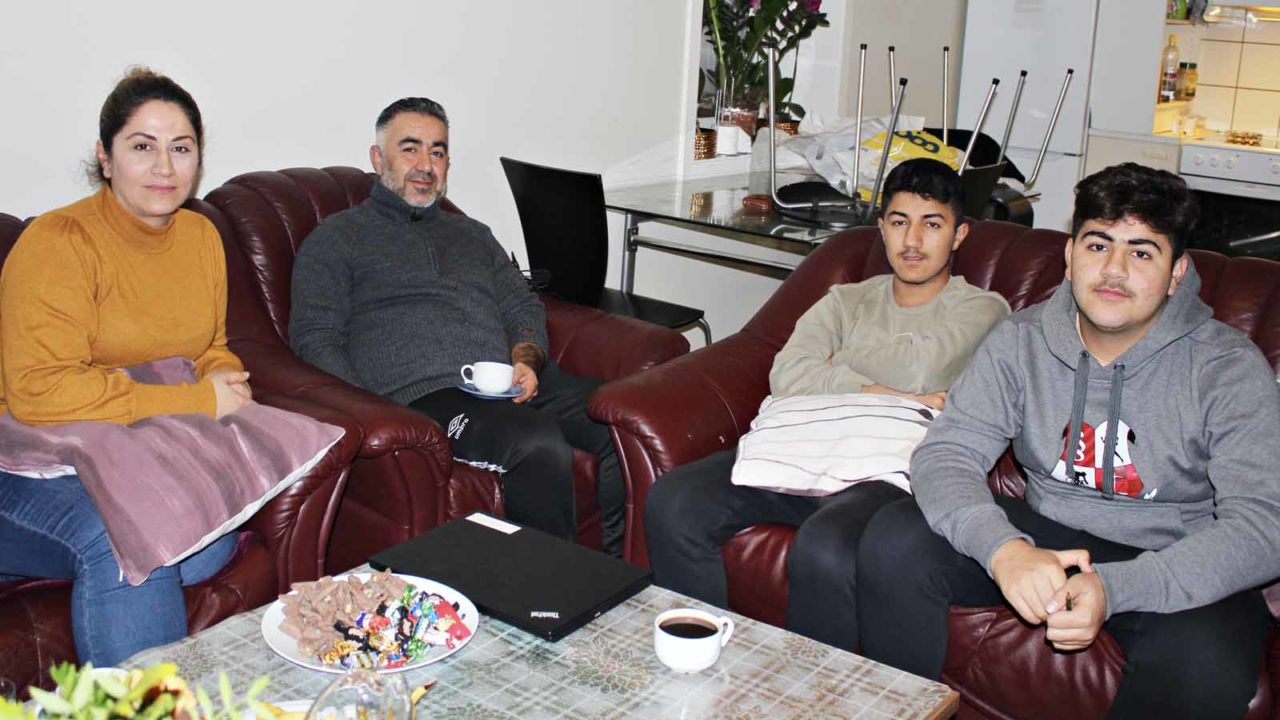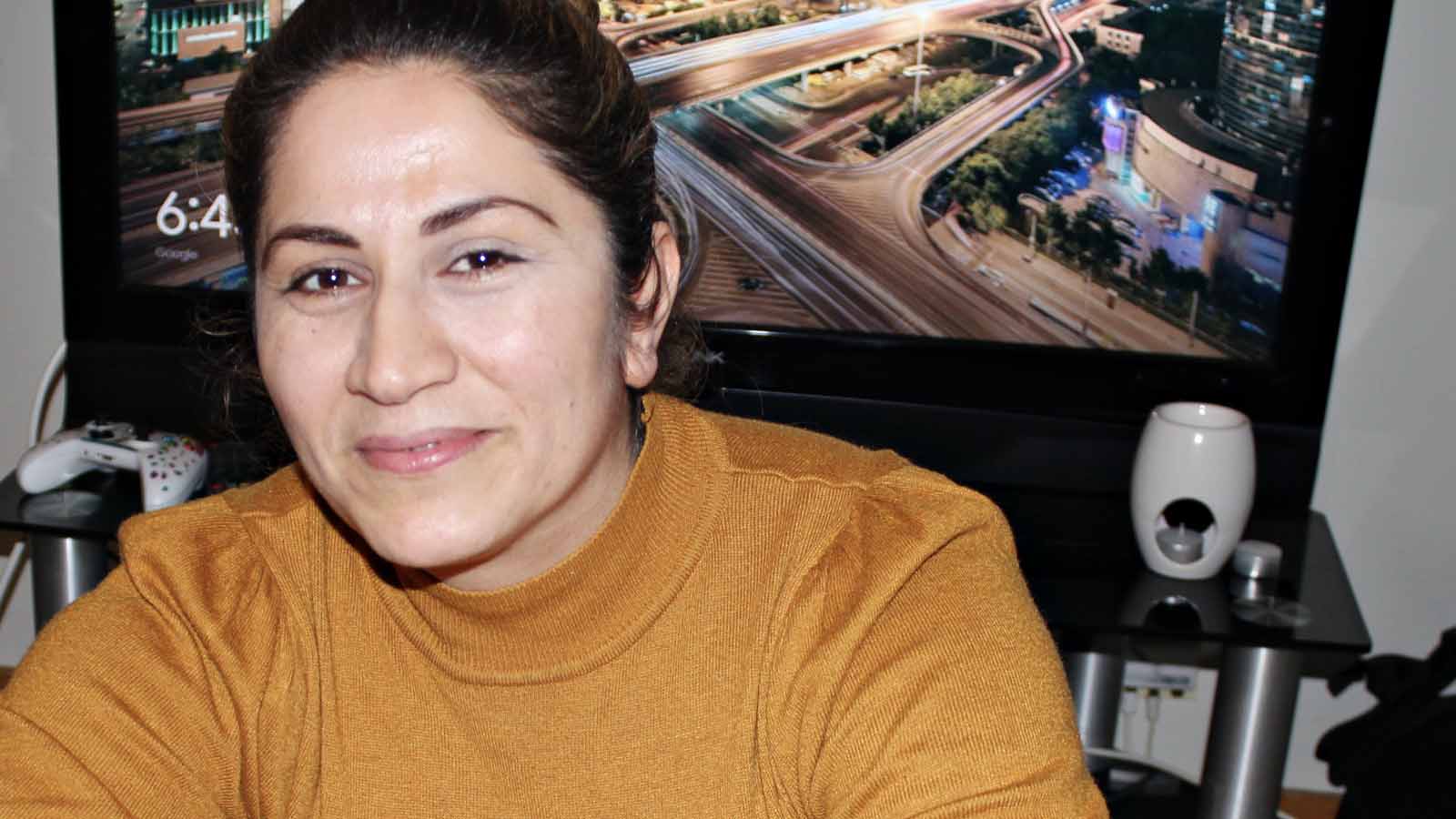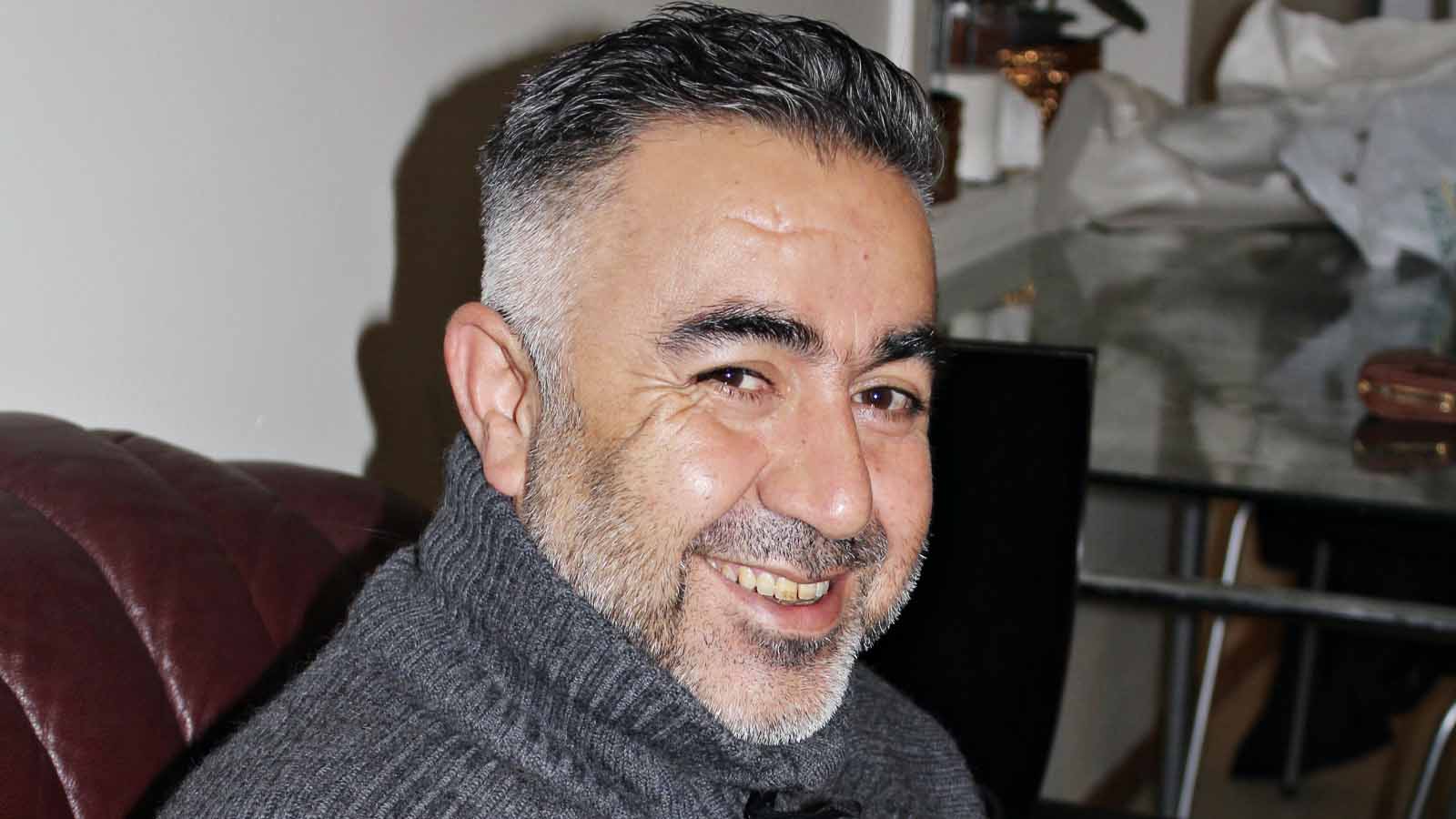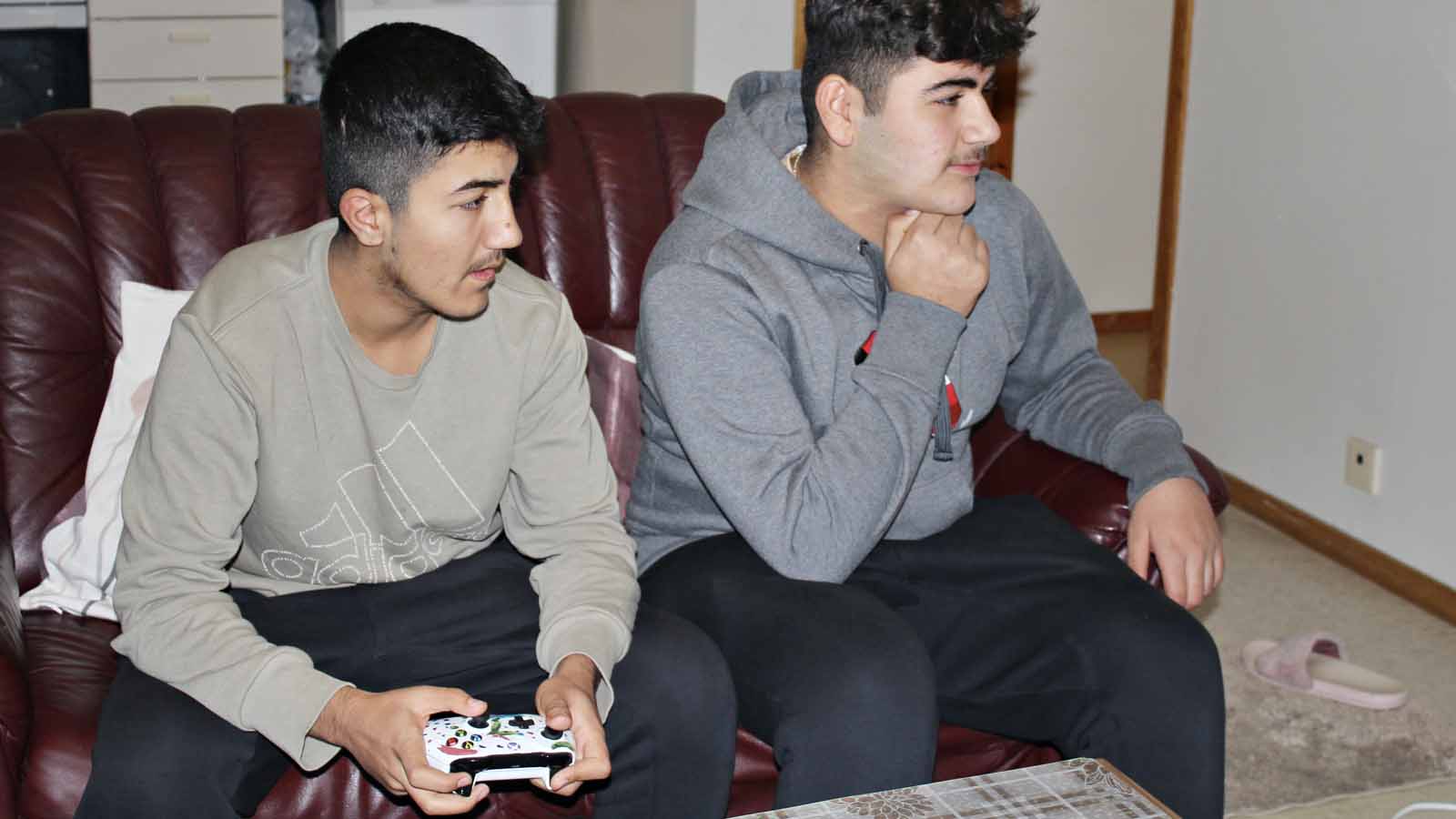
You get to play games only on weekends
–We have not come to Norway to let our children waste time on computer games. At home, they are only allowed to play on the weekends, says the father, Nashaat (42).
Choose language in the Google-box below. Some translations may be flawed or inaccurate.
We meet the Alou family at Grefsen in Oslo. Mamma, Boshra (37), serves coffee and cakes with dates, oats, and honey. The boys, Mohamad (15) and Dovlan (14), sit on the sofa, ready for a chat about what they like best to do in their leisure: Playing computer games.

– When we lived in Syria, we got to play as much as we wanted even though we were small, Dovlan says.
– You did not go to school then, replies the father.

Family reunion
Nashaat came to Norway in 2015. Boshra and his sons follow him the next year to catch up on a family reunion.
The boys were eleven and ten years when they arrived in Norway. Back in Syria, they did not go to school due to the war. This, of course, worried the parents when they lived in their home country. They saw no future for their children there.
– We are happy that our sons now have the opportunity to get an education, says Nashaat. Now Mohamad and Dovlan attend the same class as per their ages.
– They are doing well, but there are many technical words they have not learned yet, says the mother.
– Therefore, they have to read more than the other students.

Argument about gaming
As parents, it is important for us that the boys do their homework and get good grades. In the beginning, they would play too much and sometimes it affected their schoolwork. The parents, therefore, decided that they should only be allowed to play on the weekends and during the holidays.
– There was a bit of an argument when we refused them to play, but after three rounds of argumentation, they finally understood our point of view, says Boshra.
She says that she knows some parents who struggle to set boundaries for gaming.
– It is not always so good to regulate the game. Children have different personalities, and they react differently.
– I’m doing well at school now, says Dovlan and glances at his father. He nods appreciatively.
– Gaming makes the children sociable
Sometimes the brothers play together, sometimes against each other. They also play with and against friends.
– I do not want to say that gaming is just negative. It also helps them to be sociable, says Boshra. She says that the boys also play against a cousin who lives in Germany. In Syria, they were a lot together when they were little.
– Mohamad and Dovlan would have lost contact with their cousin if they had not been able to play together. It’s nice to have something in common to talk about and to be concerned about.
Fortnite
Dovlan likes to play Fortnite, Mohamad prefers Fifa.
– I do not like war games, says the mother.
She is afraid it will bring back painful memories from their years in Syria.
The boys can play as much as they want when they don’t have school and both parents are at work. Boshra is happy they have something fun to do, but she is a little worried that they will play war games with strangers.
– If someone uses ugly words in war games, I just «mute» them, Dovlan says.
The father is afraid that there will be too much shouting and screaming in the apartment when they play at home alone; – we have your neighbors!
Fifa
Mohamad enjoys playing Fifa.
– You start with the worst team and then you have to work your way up by buying players, he explains to the journalist.
– You have to use your brain in Fifa, you have to think business, says Mohamad. He says he and other students talk to several of the teachers at school about Fifa.
– We learn a little English from the game, but it is mostly football jargon.
The Youth Club (Ungdomklubben)
Boshra says that the sons go to a youth club after school. They do homework and play games at the club.
– They are under the supervision of the adults there, so I think it’s all right that they play, she says.
The boys also have other leisure activities.
– Dovlan swims and Mohamad plays football.
Boshra is glad that it’s not all about gaming for her boys:
– Too much gaming affects the health and social life of the family, she believes.
– Parents and children need to talk to each other and tell each other how it goes and how they feel. Besides, physical activity has its benefits. Fortunately, they have a gym at school, and luckily, Dovlan likes swimming and Mohamad football.
Nashaat would like to take the boys on Sunday walks in nature. But then it’s game time for Dovlan and Mohamad. The father thinks it’s a shame:
– Going out in the beautiful nature of this place is absolutely fantastic, he says.
– There should not be so much gaming that it affects family life. Parents and children need to talk together to feel good at home, says the mother, Boshra.
Nashaat is afraid there will be too much shouting and screaming in the apartment when the sons play at home alone; – we have our neighbors!
– I do not want to say that computer games are just bad. They have fun when they play and playing can be very social, says Boshra.
Small and Large Players
The Alou family in a film!
You can watch the film here.
Want to see how gaming affects everyday life for parents and children? Then you should watch this movie from Blå Kors. In addition to meeting the teenagers Dovlan and Mohamad in the Alou family (left), the filmmakers have talked to Andrea (9) and Mads (5) who also love gaming (right). So does dad Jonas Heier Straumsheim. His wife Pia Røe Nyhuser says in the film that there has been much more discussion about the husband’s playing than about the children. She was finally so tired of his playing that she referred him to a storage room in the basement!
Computer Games Help Integration
– Our study showed that playing computer games with friends, mostly from school, is important for immigrant teens, writes Vestlandsforsking.
Vestlandsforsking has studied why immigrant teens play and how gaming affects their everyday life in the family. The researchers found that playing games contributed to the young becoming better at Norwegian and gaining a social foothold in the local community. They interviewed teens who spend a lot of time playing, but none of those who participated in the survey were «problematic players» according to the researchers.
Different for boys and girls
The study confirms that fewer immigrant girls play computer games and that on average they spend less time playing than boys. While boys play mostly with boys and prefer fighting, strategic and sports games, most girls play other less violent games.
Conflicts in the family
Parents often lack basic information about computer games. Attempts to regulate gaming often give rise to conflicts in the family. Many hope for information in a language and in a format they can understand. Parents may also want networks and alternative activities to engage their teens, further states from vestforsk.no.
Vestlandsforsking has published an information booklet in five languages (English, Norwegian, Arabic, Tigrinya, and Dari) with tips and advice for regulating gaming for immigrant families.
You will find the booklets here.
- Text and photo: Eva Alnes Holte.
- Translation: Ratan.
- Norwegian text here.









